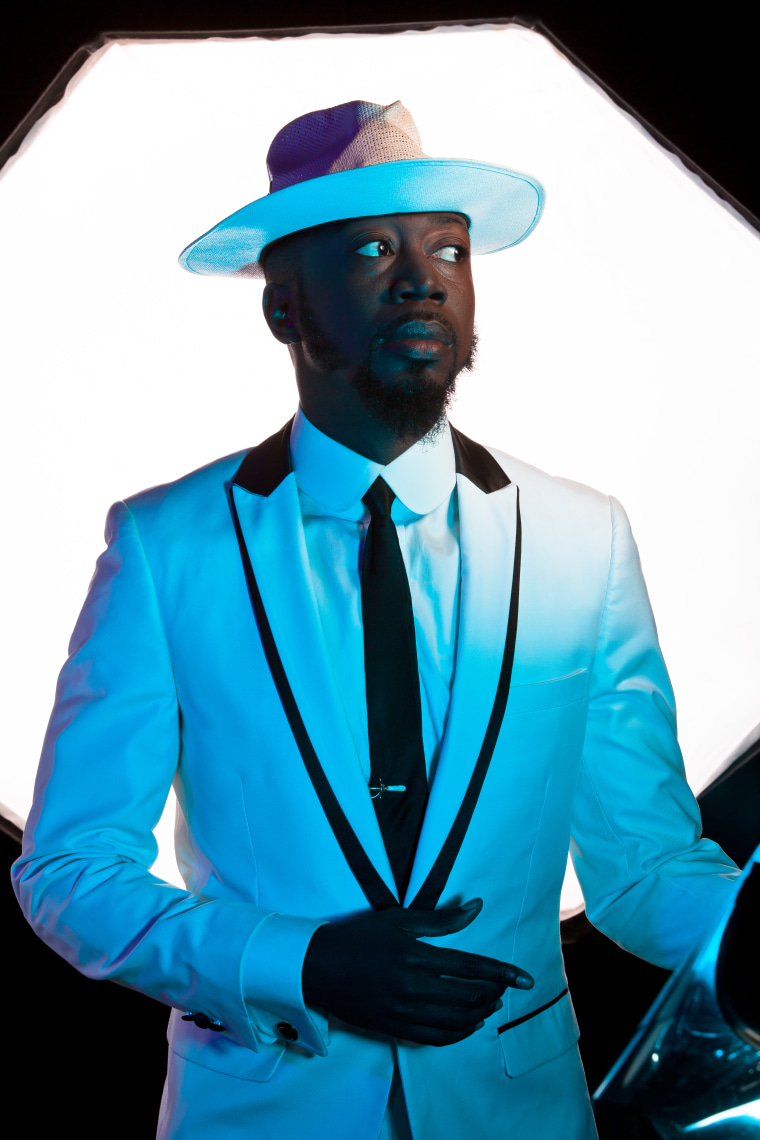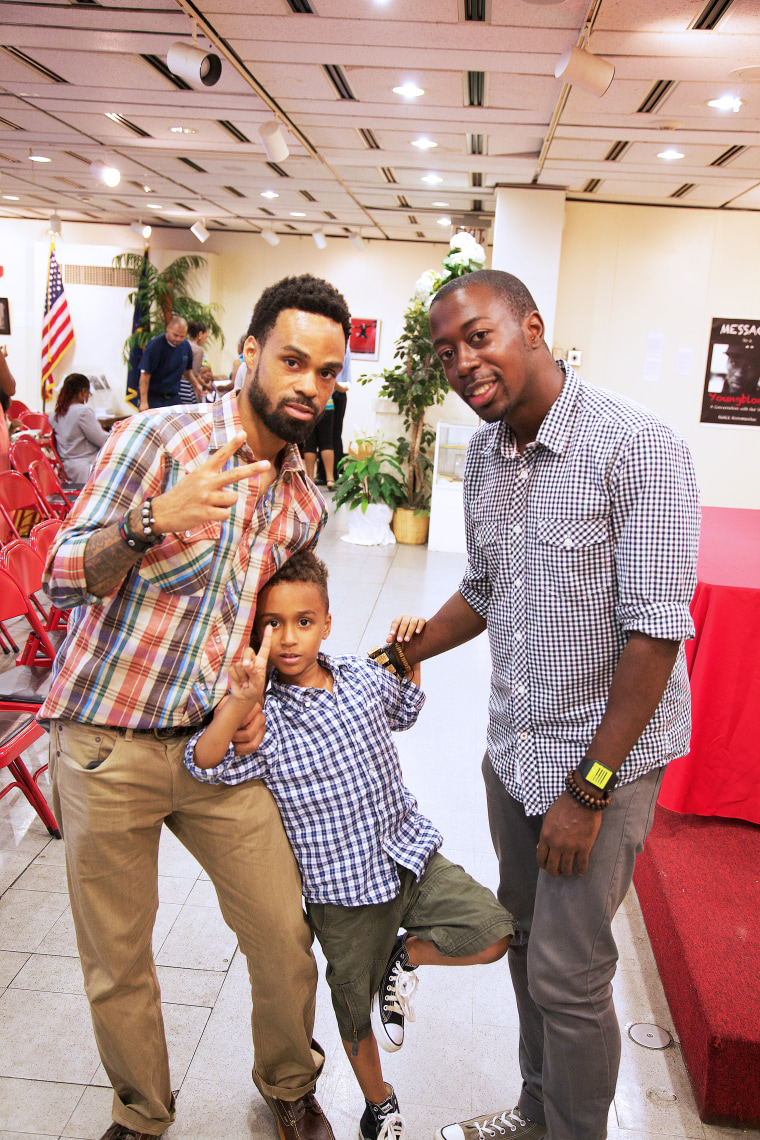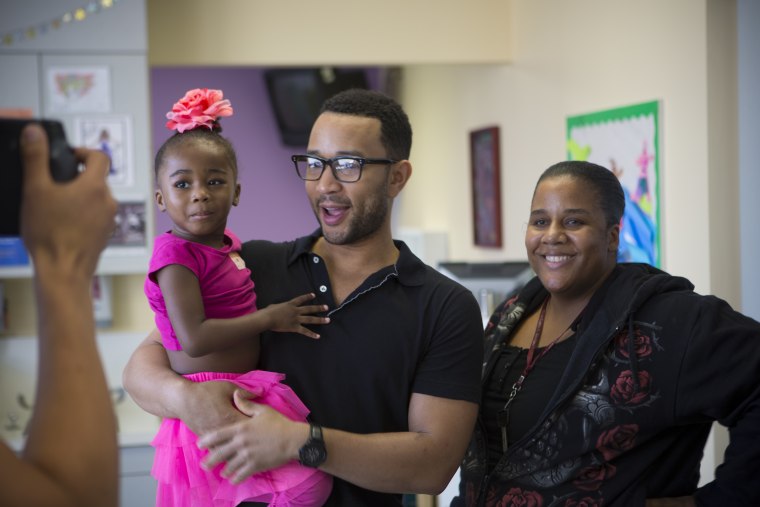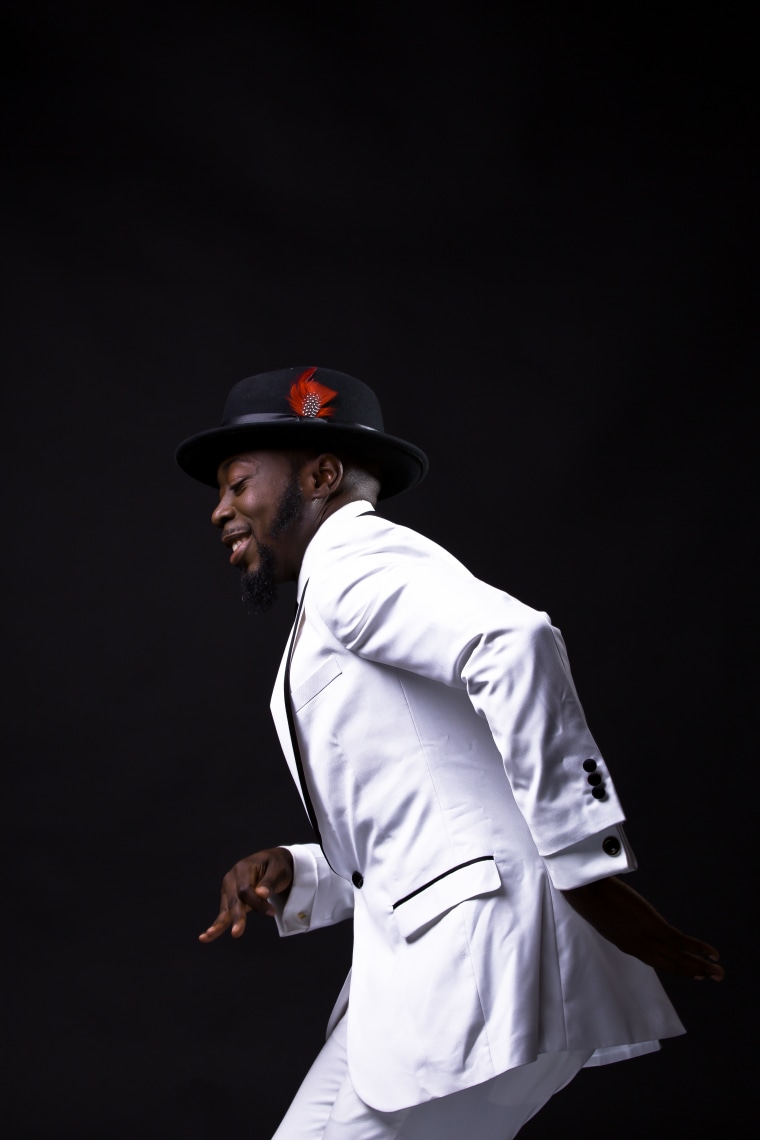Grammy-nominated songwriter and music producer, Nana Kwabena has helped create hits for many notable artists including John Legend, Rick Ross and fellow Wondaland label mates Janelle Monae and Jidenna. However, his musical genius and path to the entertainment industry began in one of the most unlikely places—a hospital.
The 31-year-old was diagnosed with sickle cell disease at a young age and says that he spent so much of his childhood in and out of medical facilities; it often felt like he was raised in the hospital.
As a teenager, complications from the disease often meant that Kwabena was in the hospital for up to two months at a time. The musician says he remembers feeling like the beeps of the machines in his room were creating ‘a soundtrack of death’ and he had to do something to change it.

He taught himself how to use the music production program Fruity Loops and started to create his own songs. “I had to create my own music to drown out the noise of those beeps and blips,” he said.
After that experience Kwabena says he knew he wanted to pursue music and at the same time shed light on sickle cell disease.
Sickle cell disease is an inherited blood disorder that affects people of all races and ethnicities in countries around the world. However, the disease is particularly common among people of African, Hispanic and Caribbean descent. The blood cells of a person with the disease become sickle-shaped (crescent shaped) and have difficulty passing through small blood vessels. This blockage prevents normal blood flow and oxygen from reaching vital organs and can cause severe pain, infections, organ failure, stroke or even death.
"On one hand I’m studying to become a doctor with the idea of using that expertise to treat sickle cell disease by day, but then by night I was living a whole different life."
Although the disease is the most common hereditary blood disorder in the United States, afflicting an estimated 100,000 Americans as well as millions of people throughout the world, it is often referred to as “the forgotten disease” because it lags behind similar diseases in research funding and media attention.
In 2012, Kwabena founded the nonprofit advocacy organization AllOneBlood to help increase public awareness as well as funds for the millions of people living with sickle cell disease. The organization has partnered with celebrities, hospitals and other organizations in order to bring this “forgotten disease” to the forefront.
NBCBLK recently spoke with Kwabena about his journey into the music industry, the work of his non-profit AllOneBlood, his Ghanaian roots and how he is using art to intersect social consciousness.

Before getting into music professionally, you were actually on the path to a very different career in the medical field. What brought about the change in your career path?
Nana Kwabena: I don’t come from a musical family. I was actually raised to become a doctor and I was pre-med in college. That was the path that my parents wanted me to take. As much as my parents pushed me down this path, my mom knew that I was going to be a musician. They were all just in denial about it because being a musician was taboo as a first-gen Ghanaian-American.
I went through school with two different lives. On one hand I’m studying to become a doctor with the idea of using that expertise to treat sickle cell disease by day, but then by night I was living a whole different life. I would be in Philly and have about 30 different Philly rappers in the room, their own Wu-Tang if you will, and I’m producing beats and then I have to say alright guys it’s six in the morning and I’m going to get an hour of sleep and then go take organic chemistry.
Related: Kendrick Lamar, The Grammys and the Year in Socially Conscious Music
I remember graduating from UPenn [University of Pennsylvania] and thinking that these two things are getting too big and something’s got to give. I never quite knew how to make them work in concert with each other, so what do you do? You buy time.
I deferred my acceptance to George Washington University, to the Milken School of Public Health with the hopes of making it in music. I moved to New York and gave myself a year with the idea that if that didn’t work out, I was going to go back and continue pursuing the medical field. In my first year in New York I wrote a song with John Legend and thought maybe I should continue.
In 2011, when you were just starting off in the music industry, you lost your younger brother Kwame to sickle cell disease. How did that experience mobilize you to bring your background in the medical field and music together in order to raise awareness about the disease?
All of a sudden these two halves of my life (music and medicine) that always felt in conflict with each other, once my brother passed they became one. They became the yin and yang to each other. Music and the medicine. Music was the medicine. So out of that I created a non- profit called AllOneBlood with the idea to change the conversation around sickle cell disease.
Related: Christen Johnson is Pushing For Diversity In Medicine
My brother Kwame had conviction and he had passion and that was always his default and it didn’t matter who you were. He was just always unapologetic about his own light and what he believed in. So when he passed I think that I inherited that idea of really just being able to be audacious, regardless of what people think you’re supposed to be or the limitations you may have.
Death really, really clarifies things. It puts life in perspective. It gave me the ability to realize that sickle cell did not have to be a forgotten disease and we could educate people and rally around the cause for a cure.
As someone who suffers from sickle cell disease, what would you say are some of the major misconceptions that people have about it? How is your organization AllOneBlood working to help change that?
I think sickle cell is a disease that within the context of America feels like a black disease, or it only affects black people and because of that it kind of becomes a disease that gets less attention. There are diseases that affect far less people in number and have ten times the budget for their national organizations.
I think there are a lot of misconceptions around the disease or thoughts around the disease that make people feel like if they don’t suffer from it, then they can’t support it. There are many faces to sickle cell disease and a lot of people don’t know that. What AllOneBlood tries to do is kind of just change the conversation around the disease and kind of open up the spectrum to show that on a global level when you remove this national lens you see that it affects people of all races.
When you can be in tune with the things that make you different it actually makes you stronger. It makes you powerful.
There’s also this stigma with chronic disease where we feel like when you have these things you have to hide it. I studied abroad in Ghana while in college and I did a research study looking at elementary aged children that had sickle cell disease and whether or not they disclosed or concealed having the disease.
There were many kids that had sickle cell disease and they would endure sickle cell pain crisis, which are like terrible, awful pain attacks. It’s the kind of pain that I have had as an adult and have been screaming to the top of my lungs, so imagine a kid dealing with this. These children would be at home having that level of pain and would go into a closet in their bedroom and close the door where they would stay and sob, not telling their parents. Why? It was because they didn’t want to go to the hospital and miss school the next day and have people say oh that person missing might be a ‘sickler’.
I wanted the conversation around the disease to go beyond the notion that this is something that is debilitating or that this is something that cripples us and it be looked at as a feature. I decided that I would let everyone and anyone know that I have sickle cell. When you can be in tune with the things that make you different it actually makes you stronger. It makes you powerful.
In your opinion, what role can music play in creating change and what responsibility do music and musicians have to use their art to effect change?
Music is one of the biggest and easiest and most effective ways to connect people that would otherwise not be connected to each other.
I’ve always appreciated artists’ who made art that wasn’t just art for art's sake. It was art that actually had real tangible impact on people's lives. I grew up listening to Bob Marley, Michael Jackson, Fela Kuti and Tupac. These were people for me that if you only made the rubric about creatives then they were the best. But, if you also open up the rubric and judge them in terms of the real impact they had on the world, these are people whose music shifted the entire world.
That’s what I want to use music for. I don’t want to just use music to be someone that’s like, yeah we’ll just make dope beats and have fun and it will be an escape to the harsh realities of the world.
I want it to be a tool that deals with the harsh realities of the world. That to me is the motto that I live by and I’ve always loved the ability music has to have that kind of influence.
It’s actually bigger than music, but the music is a very strong vehicle to help effect real change in people’s lives. And, I’ve had the pleasure of working with not only creative people and really talented people in that way, but some of the best and greatest spirits of our generation as well.
What are some things you do that you help manage sickle cell disease and what keeps you motivated?
Your general health and general well-being has a large effect on how you deal with sickle cell and whether or not you have attacks. Your nutrition is the biggest thing. If you can have a healthy diet and stay away from too much processed food as well as properly hydrate yourself and also exercise, it is so important. These are some of the things that I do. Being in a positive mental space is also extremely important.
Related: Crystal Emery is Helping to Change the Face of Medicine
Although there are some limitations due to sickle cell disease I encourage those who also have the disease to push themselves to live a wholesome life and not allow it to be something that stops your from living your dreams or simply living.
What keeps me motivated is being around people and finding inspiration that keeps that torch inside of me fueled. To not feel anything at all is a dangerous thing and I spend most of my life trying to guard my own fire, protect my fire and then add to that fire.

What is the progress you have seen in terms of awareness and education about sickle cell since you started AllOneBlood in 2012?
I think that there have been tremendous strides made recently where there are treatments that could cure the disease, but not a lot of people know about them. However, the beauty of this is that the disease is actually curable in within our lifetime.
AllOneBlood partnered University of Illinois Medical School, where doctors recently cured sickle cell disease in 16 of 19 patients without using traditional chemotherapy in 2016. This year, we’re working to raise funds so that more families who qualify for the treatment can be covered in addition to helping families across the country with other care related expenses.
My goal is to make it (a cure) a reality and that’s what my life is dedicated to. My life is literally using music as the vehicle to cure sickle cell disease off the planet. I really have two goals that’s one of them. The second is building the bridges throughout the African diaspora.
I’m Ghanaian-American and I really have this belief that Africa has this desire for all of its children to be able to recognize Africa no matter the time goes by. Africa has been erased and has been consistently been erased from history of its contributions to the entire world. My life is about making sure that it gets the recognition that it deserves.

What’s next for AllOneBlood and what can we expect from you as far as new music projects this year?
We are working on our inaugural fundraiser gala where we will bring all our partners together to share information and enjoy performances that will contribute to making a difference. Right now we are in the planning phases of that and we really look forward to that. That’s what’s next for AllOneBlood in particular.
Outside of that, creatively, more music is on the way. I’m working on a couple of projects. Janelle’s getting ready to drop what I actually believe is going to be her best album, which I’ve had the pleasure of being involved with. Jidenna and I are working on album two, there’s also a short film. There’s a lot going on, but I’m just trying to live the most fully expressed life and be on the highest vibration as long as I possibly can.
For more information on the non-profit All One Blood, please visit http://www.alloneblood.org.
